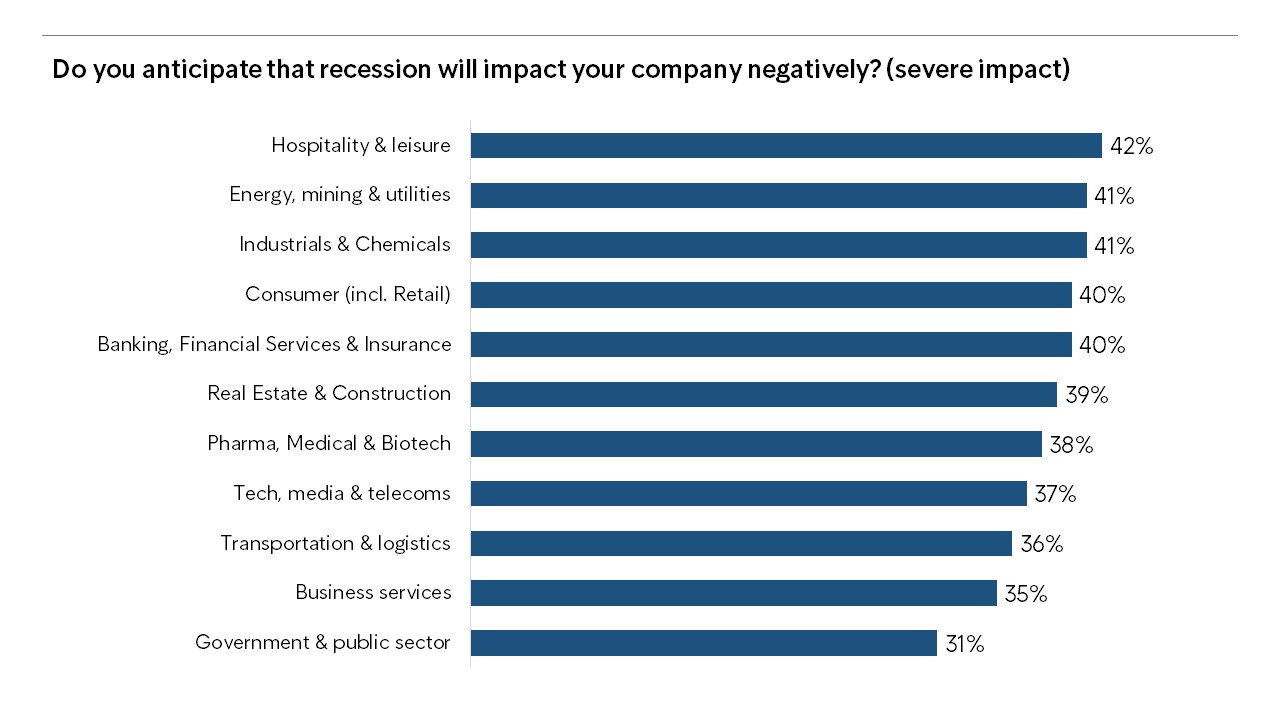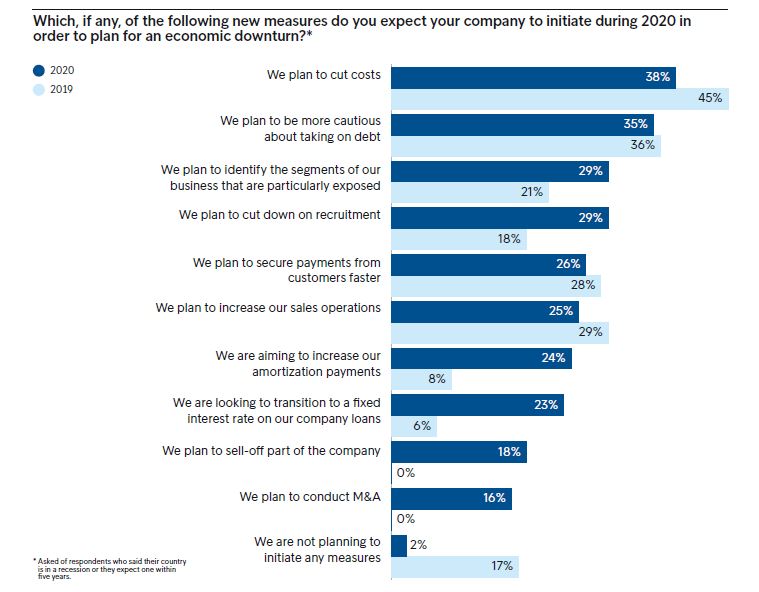Businesses are taking steps to protect themselves from a historic recession
No business could have predicted the disruption caused by the Covid-19 pandemic in 2020. It has shaken European economies and brought business operations to a halt in many sectors, leaving firms scrambling to salvage their cash flow.

European economies are entering recessions of historic proportions. The European Commission’s Summer 2020 Economic Forecast projects that the EU economy will contract by 8.3 per cent in 2020 and grow by about 5.8 per cent in 2021.
Our findings from the latest European Payment Report 2020 provide an indication of the long-term impact to come: 38 per cent of respondents expect a recession to have a severe effect on their business
Hospitality and leisure has taken a hit
Our research suggests that Europe’s hospitality and leisure industry is the most concerned about the impact of a recession. Government restrictions on travel, shopping, dining out, exercise and other leisure activities have hit the sector hard. More than four in 10 respondents from this sector (42 per cent) say that a recession will have a severe impact on their businesses – the highest figure of the 11 industries we surveyed.

Businesses cut cost and take on less debt as the recession looms
To protect their business in preparation for recession, 38 per cent of respondents plan to cut costs, while 35 per cent will be more cautious about debt. Year on year, these are the top two measures that European businesses take to protect themselves.

One preparatory measure has changed this year. Businesses are placing more scrutiny on their hiring plans: 29 per cent say they are looking to cut down on recruitment to prepare for a recession, compared with 18 per cent in 2019.
We are already taking actions to prepare for a recession by implementing a cost-reduction programme and reducing our employee headcount by 10 per centJan Karlsson, Group Purchasing & Credit control & Category purchasing Manager at Ovako AB
For those respondents whose revenue performance has been below expectations, the priority is to exercise caution in taking on more debt: 37 per cent say this is a priority for 2020, compared with 33 per cent of companies who say their revenue performance has exceeded expectations and 35 per cent of the total.
Jan Karlsson, Group Purchasing & Credit control & Category purchasing Manager at Ovako AB, told us that his firm had already seen a downturn in revenue of 20 per cent compared with 2019. “We are already taking actions to prepare for a recession by implementing a cost-reduction programme and reducing our employee headcount by 10 per cent,” he says.
About the survey:
The report is based on a survey that was conducted simultaneously in 29 European countries between 14th February and 14th May 2020. A total of 9,980 companies across 11 industries in Europe participated in the research.